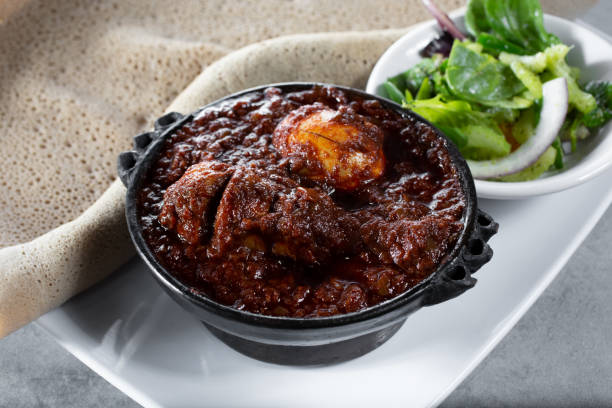Shakshuka, a beloved Middle Eastern and North African dish, has captivated food enthusiasts worldwide with its bold flavors, vibrant colors, and nourishing ingredients. This hearty one-pan dish features poached eggs nestled in a savory tomato and pepper sauce, seasoned with a blend of aromatic spices. Beyond its tantalizing taste, shakshuka offers a wealth of nutritional benefits derived from its wholesome components and culinary versatility.

One of the key nutritional components of shakshuka is its rich content of vitamins and antioxidants, primarily derived from the tomatoes and peppers used in the sauce. Tomatoes are an excellent source of vitamin C, vitamin A, and lycopene, a powerful antioxidant known for its potential health benefits, including reducing the risk of heart disease and certain types of cancer. Peppers, particularly bell peppers, add additional vitamins such as vitamin C and vitamin A, as well as dietary fiber, which supports digestive health and helps regulate blood sugar levels. Including antioxidant-rich ingredients like tomatoes and peppers in shakshuka promotes immune function, protects cells from oxidative damage, and contributes to overall health and well-being.

Moreover, shakshuka is a protein-rich dish, thanks to the eggs used as the main ingredient. Eggs are a complete source of protein, providing all nine essential amino acids necessary for muscle repair and growth, immune function, and hormone production. Including protein-rich foods like eggs in one’s diet supports satiety, promotes muscle health, and aids in weight management. Additionally, the protein in eggs is highly bioavailable, meaning that the body can efficiently absorb and utilize the nutrients it provides.

Additionally, shakshuka is often flavored with a variety of herbs and spices, such as cumin, paprika, garlic, and cilantro, which not only add depth of flavor but also offer potential health benefits. Ingredients like garlic contain bioactive compounds with antioxidant, anti-inflammatory, and antimicrobial properties. These compounds help reduce oxidative stress in the body, combat inflammation, and may lower the risk of chronic diseases such as heart disease, cancer, and diabetes. Herbs and spices also enhance the flavor profile of shakshuka, making it a delicious and satisfying meal option.

Furthermore, shakshuka can be customized to suit individual tastes and dietary preferences, making it suitable for a wide range of individuals, including vegetarians, vegans, and those with gluten intolerance or food allergies. Options such as tofu or chickpeas can be substituted for eggs to provide protein for plant-based diets, while gluten-free bread or flatbread can be used to accommodate those with gluten intolerance. Choosing high-quality ingredients and minimizing added sugars and sodium further enhances the nutritional value of shakshuka.

In conclusion, shakshuka offers a flavorful and nutritious meal option that reflects the culinary diversity of Middle Eastern and North African cuisine. With its combination of protein, vegetables, antioxidants, and herbs and spices, shakshuka provides essential nutrients that support overall health and well-being. By including antioxidant-rich ingredients, protein sources, and flavorful spices, shakshuka can be enjoyed as part of a balanced diet, providing both flavor and nutrition to meals.




